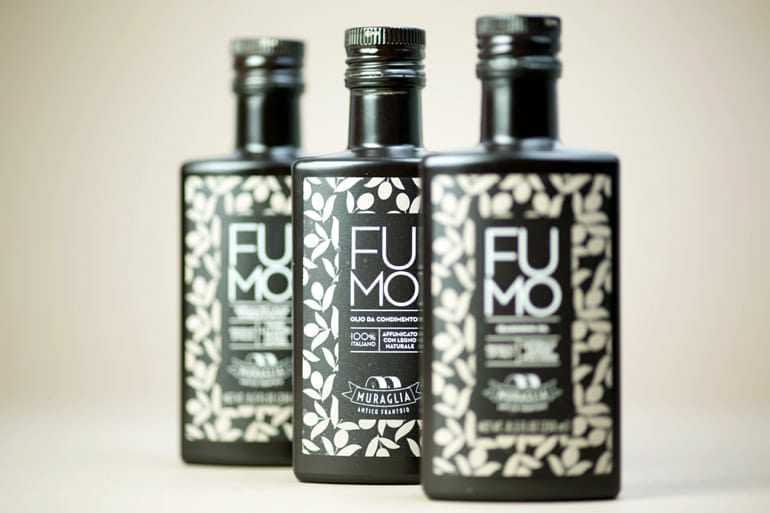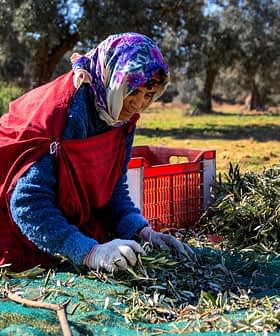Have you ever heard the Italian word capatosta? Literally meaning hard-headed, it is a vernacular, and fairly expressive term used in Southern Italy to indicate a stubborn person. Savino Muraglia is a young producer whose family has been growing and processing olives for five generations in Andria, an Apulian village not far from Bari and the enchanting Castel del Monte. He wittingly uses this word to describe himself, and you can detect a hint of smugness in his face as he pronounces it.
Savino, now in his thirties, inherited his name from his grandfather and great-grandfather along with the passion for olive oil and the family trait stubbornness. Savino’s great-grandfather bought the land, where a 450-year old Coratina olive tree still stands, almost 150 years ago, patiently putting together almost 40 hectares of mostly Coratina trees and a mill. He was a capatosta, too.
Grandfather Savino launched the farming company, now in its 5th generation, to manage the complete production process. He insisted on processing the olives as fast as possible by investing in modern machinery and increasing the hourly production from 2,500 to 5,000 kilograms to process them within 24 hours from their arrival at the mill.
Vincenzo, Savino jr.‘s father, continued the tradition caring after the olive groves and processing the olives; but times were changing and selling the loose oil to big companies was less and less rewarding and did not highlight the oil quality and the hard job to obtain it.
In 2008, the young Savino came into play. Born and raised among the olive trees, he left Apulia to study and work in Finance but eventually went back to his family town to save the farm from closing down and to give the right luster to the Muraglia’s oil. Even though he looks more like a modern businessman than a farmer, he shares with the rest of the family the love for Apulian land and for extra virgin olive oil, and obstinacy of course.
It was Savino who insisted on bottling and labeling the oil with the family name and investing in the product’s image and packaging. He worked with local craftsmen to create wonderful, multi-colored pottery jars for the premium package (he is convinced that the ceramic lets the oil “breathe” inside the bottle and oxidation is minimized). The bottles have become collectable pieces of design in kitchens and living rooms.

Muraglia’s Premium Packaging
Despite proudly declaring that they still pick their olives by hand and press them cold in ancient stone presses, the production — supervised by father Vincenzo while uncle Francesco cares about bottling and packaging — is with the help of modern technologies; traceability is also guaranteed through a dedicated system on the company’s website.
The Intense Fruity extra virgin is made with Coratina olives, giving birth to a robust oil with fierce vegetable notes; a real “polyphenols bomb” that goes well with the rustic flavors of Apulian land fares. Peranzana olives give the Medium Fruity an elegant and well-balanced character which perfectly matches with fish and other gentle recipes.
Other expressions of Savino’s capatosta is the pitted oil, which he says makes the strong Coratina’s taste smoother and enjoyable even for those who still doubt bitterness as a precious feature of extra virgin olive oil.

Fumo beechwood-smoked olive oil
Then there is the Fumo (“smoke”) obtained through cold-smoking with natural beechwood. The oil is set on thin trays in a dedicated room where the wood’s smoke gently pervade it without altering the natural room temperature. Vincenzo’s experience will tell how long the process must last. Since the Fumo is made in the spring when it is not too hot and the oil is ready to absorb the smoke, gently blending the aromas. This not only preserves the “neutracetical” content of the Peranzana oil, Vincenzo says, but it also extends its shelf-life.
“The idea was born when chatting with a friend who is a chef, almost for fun,” Savino recalls. He started a three year-long series of experiments and attempts to find the best balance with the aroma of the smoked wood. Coratina oil proved to be too intense and intrusive, while the milder Peranzana was perfect, balancing the delicate smoky notes with the fresh and gently pungent aroma of the oil.
We tried it to lightly season a wonderful Cecina de Léon, the traditional beef hind leg salted and slowly cured from northwestern Spain, and it was simply divine.








